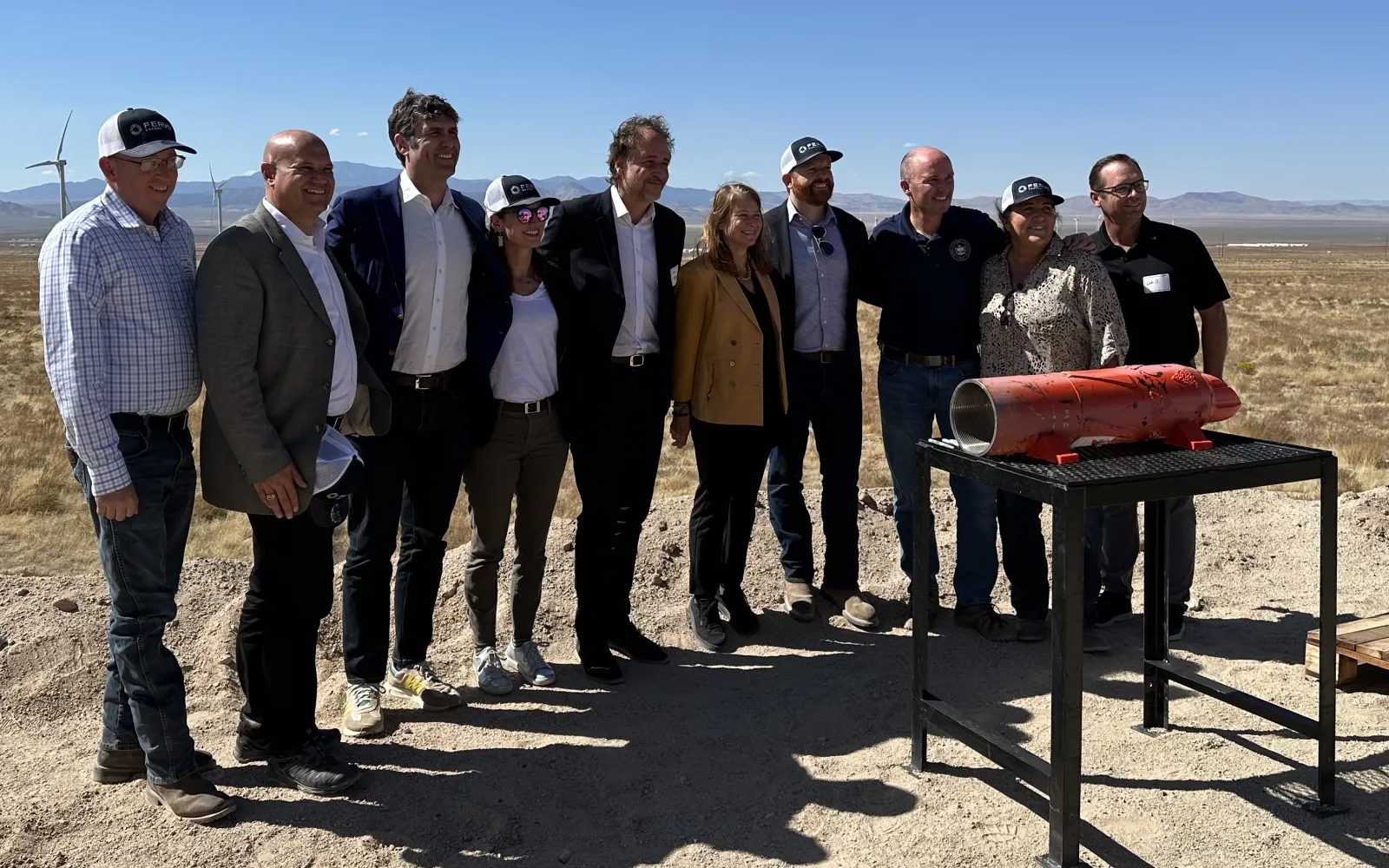

Fervo Energy
Tapping into the heat beneath our feet to provide gigawatts of clean energy
Yesterday, we were thrilled to take part in an important day in the history of the fight against climate change as DCVC-backed Fervo Energy broke ground for its Cape Station power plant.
The groundbreaking ceremony in Beaver County, Utah marked the start of the drilling campaign at Cape Station, Fervo’s next-generation geothermal energy project set to deliver 400 MW of 24⁄7 carbon-free electricity. Cape Station will begin delivering around-the-clock, clean power to the grid in 2026 and reach full scale production in 2028. Fervo’s leadership was joined by Utah Governor Spencer Cox, as well as other federal, state, and local officials.
When we invested in Fervo last year, we felt great excitement about the company’s potential to lead a renaissance in geothermal exploration. That conviction has been borne out. Earlier this year, Fervo announced a breakthrough at its first commercial project, Project Red: using drilling technology honed in the oil and gas industry, the company performed a 30-day well test, the results of which established Project Red as the most productive enhanced geothermal system in history.
As Governor Cox said in his remarks, Utah is both deeply experienced in energy production — including the State’s legacy fossil fuel production, as well as power from rich sources of wind, solar, and biogas near the Cape Station site — and a promising source of geothermal energy. Researchers estimate that the southwest portion of the state contains more than 10 GW of high-quality geothermal reserves. Utah is poised to be at the forefront of the transition to renewable energy at scale.
Fervo Co-Founder and CEO Tim Latimer pointed out that Cape Station has a material advantage in addition to its geothermal reserves: its proximity to the U.S. Department of Energy’s Frontier Observatory for Research in Geothermal Energy (FORGE), which has published years of revolutionary research that has dramatically advanced geothermal development in the region. Tim explained that FORGE’s research and data collection has already been immensely helpful to Fervo’s work in Utah.
Indeed, success in geothermal is squarely in our nation’s interest, as Principal Deputy Assistant Secretary for Land and Minerals Management Laura Daniel Davis made clear in her remarks. She underscored the federal government’s commitment to achieving a carbon pollution-free power sector by 2035, calling the Cape Station geothermal energy project an important milestone in America’s effort to make that goal a reality.
Fervo’s site will be enormously beneficial to the state and local economy. Cape Station will channel up to $1.1 billion to supply chains and local businesses, catalyzing critical growth in Beaver County and beyond, expanding the geothermal infrastructure ecosystem. The site will provide roughly 6,600 jobs during construction and 160 full-time jobs throughout its operations, generating more than $437 million in earned wages through 2028. In her remarks, Beaver County Commissioner Tammy Pearson spoke about how much this job creation means to their community: she foresees young adults who had left the region looking for jobs being able to return home for good.
Throughout the process that led to yesterday’s celebration, Fervo has done things the right way. The company has maintained a strict commitment to environmental health and safety, and has had robust engagement with the community it is joining. In February, the Bureau of Land Management approved the project’s first Environmental Assessment, issuing a Finding of No Significant Impact pursuant to the National Environmental Policy Act (NEPA). This allows Fervo to commence exploration activities at the Cape Station site.
We offer major congratulations to Tim and the whole team — and to the residents of Utah, which will be the proud home of the first next-gen geothermal power plant in the world to offer firm power at scale. This happy day is a good indication of deep tech’s power in the hands of committed, talented, driven people.
Zachary Bogue is the Co-Founder and Managing Partner of DCVC. Rachel Slaybaugh is a Partner at DCVC.





